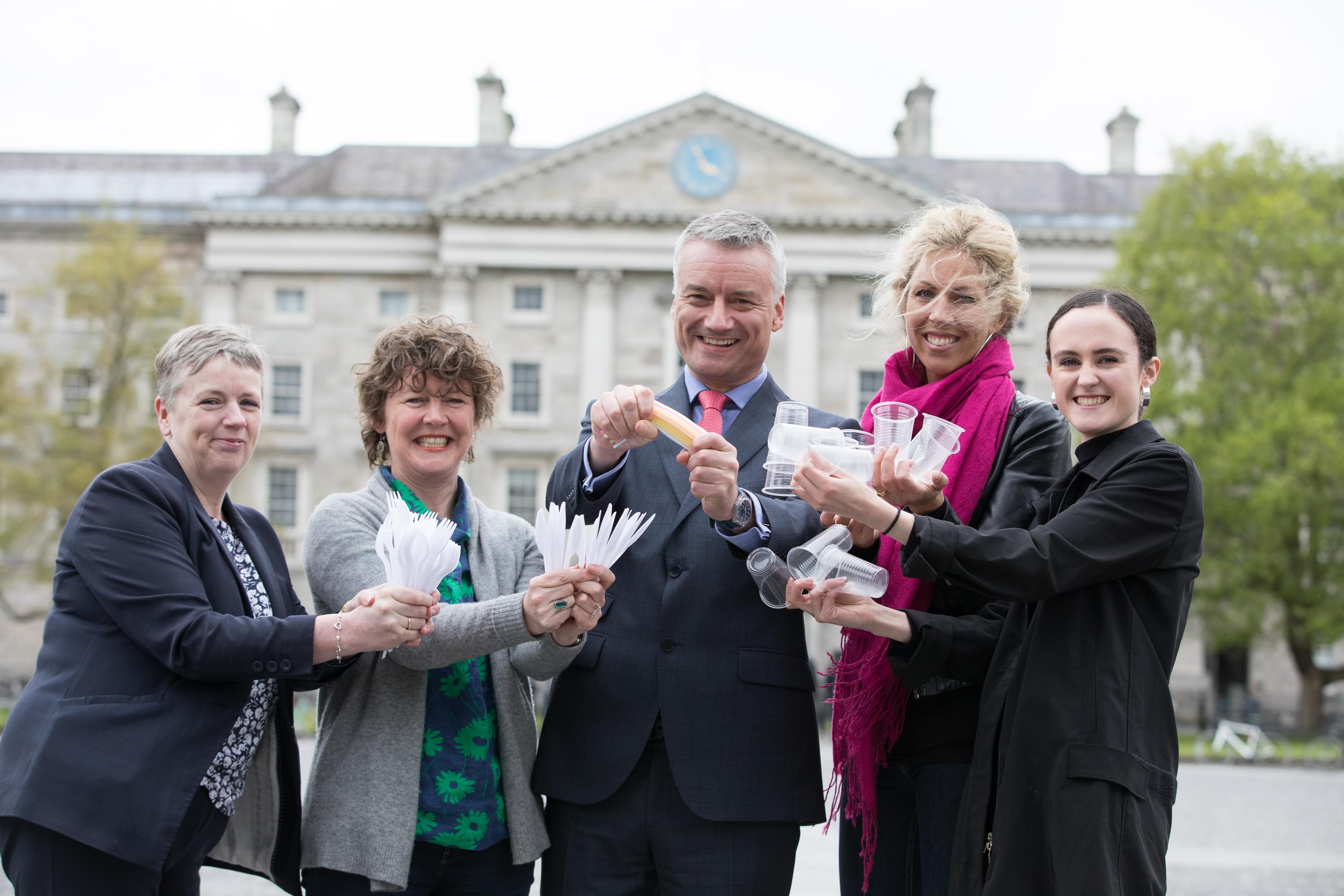2017 marked the first year that Trinity’s greenhouse gas emissions fell below the 2006-08 baseline, according to the Sustainability Report 2017 published by College this morning. Trinity’s greenhouse gas emissions were 7% lower in 2017 than 2006-08.
Renewable energy sources accounted for over 8% of energy consumed in Trinity in 2017, according to the report. This marks a notable increase since 2006, when just over 2% of energy consumed came from renewable sources. College is working towards a target of 14% renewable energy sources by 2020.
Solar water heating panels on residences in New Square, the Pavilion bar (the Pav) and the Lir have helped College make the switch from non-renewable sources like oil or gas to renewable sources like solar energy. Additionally, high efficiency LED lighting was installed in a number of locations in 2017.
The Sustainability Report 2017 addresses key sustainability areas including energy, carbon, waste, water, transport, resource use, green procurement, sustainability education, research and entrepreneurship, and student/community involvement.
Provost Patrick Prendergast noted that the report “highlights our collective achievements made to date as well as the challenges we face ahead.” Prendergast explained he believes “every little contribution brings us a step closer to our goal of a more sustainable future.”
“In this way, it is up to all of our college community to help us meet our objectives and targets,” the Provost continued.
Despite a 4% increase in waste per person, a 46% recycling rate was maintained from the previous year. Since 2012, College has sent no municipal waste direct to landfill, instead converting most non-recyclable waste into Refuse Derived Fuel.
The report outlines that College is still facing challenges, explaining that overall waste generation continues to grow. College aims to eliminate litter and disposable single-use plastics on campus. The report advises to be mindful of contamination when recycling, noting that emptying a coffee cup into a recycling bin can result in none of the bin’s waste being suitable for recycling.
College has decreased its water use by 41% since 2010. All new buildings and major renovations prioritise water efficiency, fitting dual flush toilets, low flow showerheads and auto-stop taps. The report notes that College’s target to decrease water consumption per student by 45% is on track to be achieved by 2020.
According to the report, only 3% of Trinity staff and students travel by car. 28% walk and 14% cycle, while the remainder use public buses, trains, or the Luas.
College reduced its purchased paper use by over 50% between 2011 and 2017. Recognising a 21% increase in bottled water use on campus since 2011, the report outlines College’s plan to roll out mains fed water fountains to reduce bottle usage. The Buttery and Perch, two dining outlets on campus, joined the Conscious Cup Campaign in 2017 which promote discounts on hot drinks for people using reusable cups.
Between 2012 and 2017, College has increased its amount of green area, biodiversity areas, and number of trees. The report explains that College is on track to meet its 2020 target of requesting all tenders to submit environmental information.
College ran one of its first freely available open online courses last year, entitled “Achieving Sustainable Development”. The report explains that this course allowed students globally to examine the challenges of sustainable development and the United Nations’ Sustainable Development Goals (SDGs).
Trinity received the award of Green Flag campus status in 2013, becoming the first university in a capital city globally to receive the flag. College’s objective is to become the first university in Ireland to join the International Sustainable Campus Network (ISCN).
Yesterday, College announced that The Buttery and the Pav have replaced plastic straws with compostable ones. The move is a step towards College’s goal of eliminating the sale and use of single-use plastics on campus.







